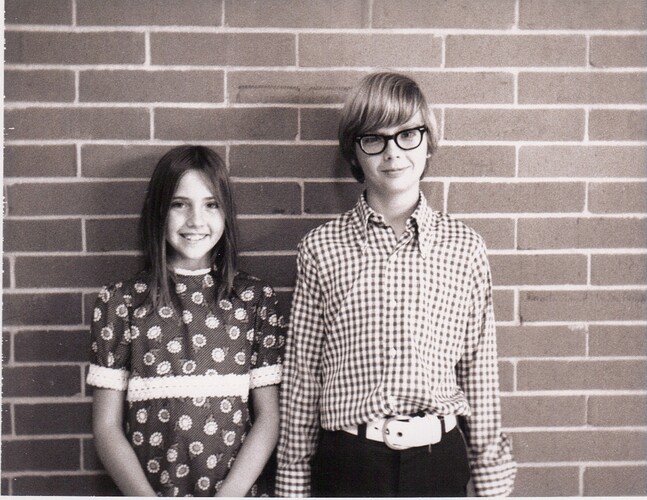What I’ve had to rethink the most—and what’s given me a lot of angst in the process—has been the role of facts, reason, science, evidence, learning, academia and the like. This is something that I’ve ended up rethinking twice.
The other Christians who I know fall into a pretty wide spectrum. Some of them are well educated and responsible, but others at the other end of the scale are thoroughly anti-intellectual. Some of them take the line that facts are of the devil, that reason is the enemy of faith, that demanding evidence is unbelief, that “secular science” is not to be trusted, that becoming like little children means embracing wilful ignorance, that exams and professional qualifications are sinful and selfish ambition, and that thinking too much stops you from being able to hear God.
After I left university, it was the anti-intellectuals who influenced me the most. This was largely because I’d had a pretty rough time of it as a student: I was in poor physical and mental health for much of my second year and I ended up not doing nearly as well as I had in my first year as a result. When I graduated, I was exhausted, depressed and burnt out, and after a couple of years not having a clue what I was going to do, I ended up working for my father supporting him in his Bible teaching ministry. It was a wonderful, restorative and healing time, but all the struggles I’d had at university left me prey to every anti-intellectual attitude that was knocking around in the church. By the time I reached my late twenties there even came a point at which I started to feel ashamed of my degree in Natural Sciences from Cambridge University.
Then about six weeks after I turned thirty, my father died of cancer.
Since I had been working for him for the best part of a decade, I now had to figure out what I was going to do with my life and my career. It was at this point that Reality hit me. Having bought into all the anti-intellectualism, I had failed to develop any marketable skills, and in fact some of the anti-intellectual attitudes that I’d adopted were even stopping me from functioning properly in the workplace. Having been commended as a teenager at school for setting myself high standards, I’d now come to a place where I was viewing the high standards for which I had once been commended as sinful.
I ended up spending the next several years having to deconstruct all these anti-intellectual attitudes just to be able to function properly in the workplace and start climbing the career ladder above a minimum wage role. It was a very, very painful process because I kept wondering if I was sinning by doing so. I remember when I first heard about the SMART criteria—the idea that you could and should expect goals and critique to be specific, measurable, achievable, relevant and time-bound was pure revelation, and it made so much sense on a practical level, but at the same time there was something in me that made me wonder if I was tasting the forbidden fruit by thinking so.
As I’ve read the Bible in the years since though—especially Proverbs—I’ve come to realise that setting high standards, thinking clearly, demanding evidence and rigour and all the rest of it, are actually Biblical principles. People who view 1 Corinthians 1 as an anti-intellectual manifesto are misunderstanding and misrepresenting it, and people who dumb things down in the name of “becoming like little children” are not doing what Jesus demanded—on the contrary, they are glorifying wilful ignorance. And if you’re an intellectually-minded type who can’t stop thinking and trying to work everything out, if God wants to speak to you, surely He can use your intellect in order to do so if He really wants to?
That’s why I can get so snarky with bad arguments and falsehoods. When I confront young earthism, it’s not the idea of the earth being six thousand years old itself that gets up my nose; it’s the idea that it’s acceptable or even expected to fudge measurements, cut corners, quote mine, lower your standards or get sloppy and indisciplined in the name of “making science fit Scripture” in order to justify it. My challenge to young earthists is not to stop claiming that the earth is young, but to clean up their act, justify their approach to measurement and mathematics, and start applying the same standards of technical rigour and quality control as everybody else. Because anything that fosters irresponsible, dishonest or denialist attitudes to science, evidence, reason or critical thinking is ultimately going to undermine your ability to do your job, progress in your career, and keep your loved ones safe.
